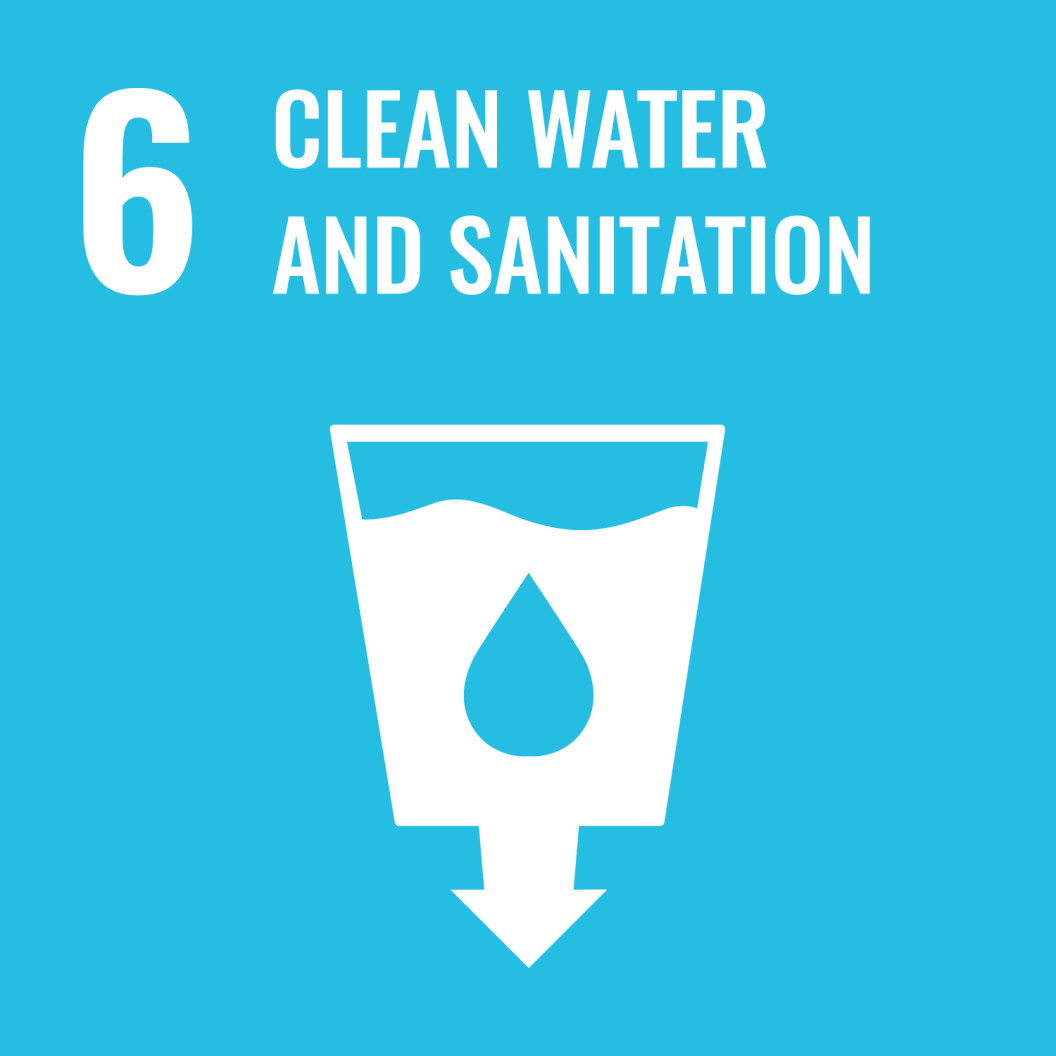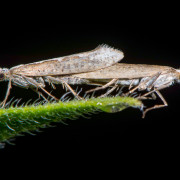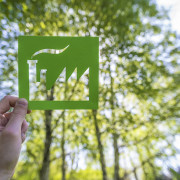- Science News
- Frontiers news
- Rachel Schattman – Sustainable management & community engagement are the keys
Rachel Schattman – Sustainable management & community engagement are the keys
Author: Rafa Tasnim
Dr Rachel E Schattman is an Assistant Professor of Sustainable Agriculture at the University of Maine School of Food and Agriculture, where she leads a group of graduate students and staff scientists in the Agroecology Lab. She is also a fellow with The George J Mitchell Center for Sustainability Solutions and an associate of the University of Maine Climate Change Institute. Previously, Rachel served as a postdoctoral researcher at the United States Department of Agriculture Northeast Climate Hub, where her work focused on climate change and adaptation from agricultural perspectives, as well as designing curricula for adult learners.
In this blog post, we will discuss accessibility to clean water and sanitation as part of the United Nations Sustainable Development Goal 6 through the lens of Rachel’s research expertise and perspectives on sustainable agriculture and climate change.

Photo credit: Karrah Kwasnik
What encouraged you to work towards sustainability, more specifically on climate change issues and sustainable agriculture?
“I believe that climate change is the biggest threat to human and non-human communities and ecosystems around the world, and that the danger it poses to our ability to grow food is worthy of our close attention. I did not start my career in agriculture with this in mind though. I have farmed since I was a teenager, and I started doing so because I loved the work: being outside all day every day, growing food, learning new skills, and working with wonderful people. Through high school and college, I continued to spend my summers farming and eventually started my own mixed-vegetable operation, which I ran between 2009 and 2019. The work was very rewarding. In laboring on farms, including my own, I was part of the joyful relationship that is growing, giving, and receiving food.
“It wasn’t until my own farm was negatively affected by flooding that I started to pay attention to what climate change could and would mean for farmers around the world. I am somewhat embarrassed that I came to the idea so late! I was inspired by authors like Laura Lengnick, who wrote Resilient Agriculture: Cultivating Food Systems for a Changing Climate, to learn more, which led me to work with my doctoral advisor, Dr V Ernesto Méndez, at the University of Vermont. My dissertation research was a mixed methods study of how farmers in Vermont thought about and were adapting to climate change. The stories of the farmers that I interviewed and surveyed were inspiring and sobering. Farmers are simultaneously some of the best problem solvers and very vulnerable to forces, like climate change, that are beyond their control. Their ingenuity and commitment are what keeps me inspired and committed to working on climate change and agriculture in my current role as an Assistant Professor of Sustainable Agriculture at the University of Maine.”
How crucial do you think clean water is to the agricultural systems under drastic climate change events? How do the scientists in your lab perceive the importance of accessing clean water for sustainable agriculture and food security issues?
“Much of my own research is related to water management on farms in a changing climate. However, the mission of my lab is broader than this. Our team works together to better understand the complexity inherent in agroecosystems, which includes water, soil, and plants; human and non-human interactions; and abiotic factors like weather and climate. The definition that our lab has created for agroecology is ever evolving and builds upon the work of many scholars that have come before us, notably Dr Stephen Gliessman. Agroecology, as we practice it, ‘applies ecological principles and attends to human needs in the practice of agriculture, forestry, and landscape management.’ The mission of our lab is to work closely with the communities we serve. We seek to create and communicate useable agroecological knowledge through research and synthesis, in collaboration with end-users and communities, to sustain and improve socio-ecological systems.
“Under this broad umbrella, some of the projects that graduate students and research staff in my lab currently work on address water and climate change among other topics. This is largely because we have heard directly from farmers in our region that this is a high priority for them. Personally, I think that it is difficult to overstate the importance of water management in a changing climate. It is especially challenging in regions like the Northeast United States, where farmers must often contend with both too much and too little water, sometimes even in the same growing season.”
Do you think we might have taken access to clean water and sanitation for granted without considering the future consequences of our planet? Could ignorance be partially responsible for the major food insecurity issues happening around the world? Is it too late or do we still have room to tackle these issues based on implementation of advanced research, technology, policies, etc.?
“At least in some ways, the royal ‘we’ has taken access to clean water and sanitation for granted. Ecosystem health, and by extension human health, have been treated as externalities for too long. The true costs of degrading public waters are often borne by individuals and communities who did not decide to pollute them and who do not benefit from their degradation. However, there are many efforts to address these classic market failures in both the private and the public sphere. It’s a question of balancing resources dedicated towards economic development and conservation, and rewarding those who can do both simultaneously.
“World food insecurity is a big issue that includes, but is not exclusive of, clean water and sanitation. Mike Davis wrote a book called Late Victorian Holocausts that I read many years ago and which still is with me today. His premise was that famines, specifically those of the late 1800s, are not the result of ecological disasters as they are often painted to be, but rather are manufactured crises driven by colonial politics. Loss or excessive pollution of water resources can be viewed through the same lens. Yes, there are ecological factors at play, but human governance, or lack of governance, creates a stage for degradation.
“However, I do not believe it is too late to address these large issues. Elinor Ostrom, Nobel Prize winner in Economic Sciences, has written about the diversity of community-based governance approaches that can effectively govern water resources in particular. Ostrom and her colleagues suggest that governance of water resources is inherently complex and is best managed through deliberative processes that rely on trust, negotiation, and compromise. Reengaging communities in governance of water resources is an important step towards ensuring these resources are available for future generations.”
You have been closely working with farmers who are the backbone of agricultural production. How do the farmers perceive the rising concerns of access to clean water and sanitation?
“There is no question that farmers understand the importance of water and water management. Even in temperate regions like the northeastern United States, there are concerns among agricultural communities about having access to water needed to grow food. Over the past several years, I have worked closely with colleagues at the United States Geological Survey (USGS) New England Water Science Center on a project to install and assess a new shallow well design. The high degree of interest in the well project, demonstrated by farmers through emails, calls, and responses to a recent informal survey, shows me that accessing clean water for crops and livestock is on many peoples’ minds.”
One of your publications titled “Water use governance in a temperate region: Implications for agricultural climate change adaptation in the Northeastern United States (Schattman et al. 2021)” was based on the fact that access to water is a vital factor for sustainable agriculture under climate change. Could you share your motivation for that study and the ultimate message that this study provides?
“I worked on the study mentioned with my colleagues, Dr Meredith Niles and Hannah Aitken, in 2019. Both Dr Niles and I had conducted studies with farming communities in different regions on the effects of climate change. We both knew that water management was of utmost importance, regardless of whether these communities were in wet or dry regions. Dr Niles had recently completed work looking at laws and regulations pertaining to California’s water resources, and we realized that a similar review had yet to be completed for the Northeast United States. State statutes, case law, and regulatory frameworks for water resources in the Northeast are very different from those found in the western part of the United States. They are also very heterogeneous. We wanted to better understand how (or if) these governance strategies would affect agriculture if (and when) water resources become scarce. Specifically, our manuscript raised the question: how will agricultural users fare if (when) competition for water resources increases?
“Through our review, we raise important questions pertinent to policy makers and scientists in temperate regions around the world. Specifically, we illustrate how states within a historically water-rich region have developed heterogeneous governance structures that may or may not be sufficient to address future conflicts caused by increasing demand due to population growth and scarcity due to climate change. While water governance structures are well-developed in regions where scarcity is familiar, many temperate regions and the governing bodies within them remain untested. The most important management recommendations stemming from this work is that there is an opportunity for states or provinces in temperate regions to proactively assess their governance approaches, including their withdrawal regulations, permitting, reporting requirements, and scarcity provisions for water use in particular. Doing so could help ensure that the effects of a changing climate do not undermine our ability to produce food, fiber, and fuel in agriculturally important regions worldwide.”
Based on your knowledge and experience, what solutions have been or are being implemented to address the concerns with access to clean water and sanitation?
“As I mentioned previously, I think that access to clean water is an important goal, alongside climate adaptation and mitigation more broadly. These issues are being addressed through policy at all levels, from local to global. One of the most important pieces of US federal policy in recent years is the Inflation Reduction Act (IRA) of 2022, which appropriated approximately $24.4 billion dollars to increase conservation program offerings for farm and forest managers. I’m hoping that the upcoming US Farm Bill also centers around climate change and gives land managers the tools they need to address this large problem. Many national advocacy organizations have made this one of their top priorities for the upcoming season, including the National Farmers Union and the National Sustainable Agriculture Coalition, among others.
“At the state level, there is adoption of climate-related policies across the United States. Just under half of the states have adopted greenhouse gas reduction targets, including things like support for ‘clean’ transportation, emissions limits, carbon pricing, and more. And of course, local action is of great importance as well. In Maine, where I live and work, the state has made a range of community grants available for towns and cities to address challenges like rising sea levels. Towns and municipalities have committed to climate change planning processes, geared towards both adaptation and emissions reductions.
“Private businesses also have an important role to play in developing and implementing solutions. I have learned a great deal recently from farmers who participated in the first pilot of the Climate Adaptation Fellowship, a one-year program that I coordinated in partnership with Erin Lane of the USDA Northeast Climate Hub and Marjorie Kaplan of the Rutgers Climate Institute. In the Climate Adaptation Fellowship, 37 farmers and agricultural advisors worked together in pairs to develop climate risk assessments and adaptation plans for their specific farms across the Northeast region.
“A subset of fellows put some aspects of these adaptation plans into place, and several of these plans pertained to improving on-farm water management. For example, several fellows purchased and installed soil water monitoring sensors to better align irrigation with crop needs. Others experimented with reduced tillage or no-till at different scales, with a variety of cover cropping and mulching strategies. These approaches help conserve soil water and reduce the need for supplemental irrigation. The fellows also shared what they did with their communities through a wide variety of outreach activities, including newsletters, conference presentations, on-farm field days, and more. I loved seeing the creative ways that farmers translated general problems, such as rising temperatures and variable rainfall, to specific solutions. It really drove home the fact that adaptation to climate change will be very tailored to every farm.”
In many countries, women are a significant part of successful agricultural productions. As a woman, a former commercial farmer, a scientist, and a leader of young scientists, how crucial do you think women are to successfully address the issues of accessing clean water and sanitation?
“I have had two related careers so far: farming and science. Both are fields where men are better represented than women, and where many women and woman-identifying people face both cultural biases and structural barriers. In agriculture, the proportion of people who farm as a primary or secondary occupation has been declining for a long time. According to the American Farmland Trust, 43% of US farmland is farmed or co-farmed by women. However, these women are less likely to receive funding from federal or state conservation programs and many other services. To effectively address issues like climate change, water quality, and soil health, women farmers should be full partners in conservation and production initiatives.
“In the United States and many other places, women remain underrepresented in science, technology, engineering, and mathematics (STEM), both in educational settings and in post-college careers. Even as the proportion of STEM students who identify as female increases, the number of women in STEM faculty positions remains lower than their male-identifying counterparts. This matters because diversity in scientific fields leads to more innovation and creativity. We should acknowledge that there are structural barriers that make it difficult for many women to stay in STEM careers, but that addressing these barriers can improve the quality of life for all of us.”


Frontiers is a signatory of the United Nations Publishers COMPACT. This interview has been published in support of and United Nations Sustainable Goal 5: Achieve gender equality and empower all women and girls and United Nations Sustainable Development Goal 6: Ensure availability and sustainable management of water and sanitation for all.







